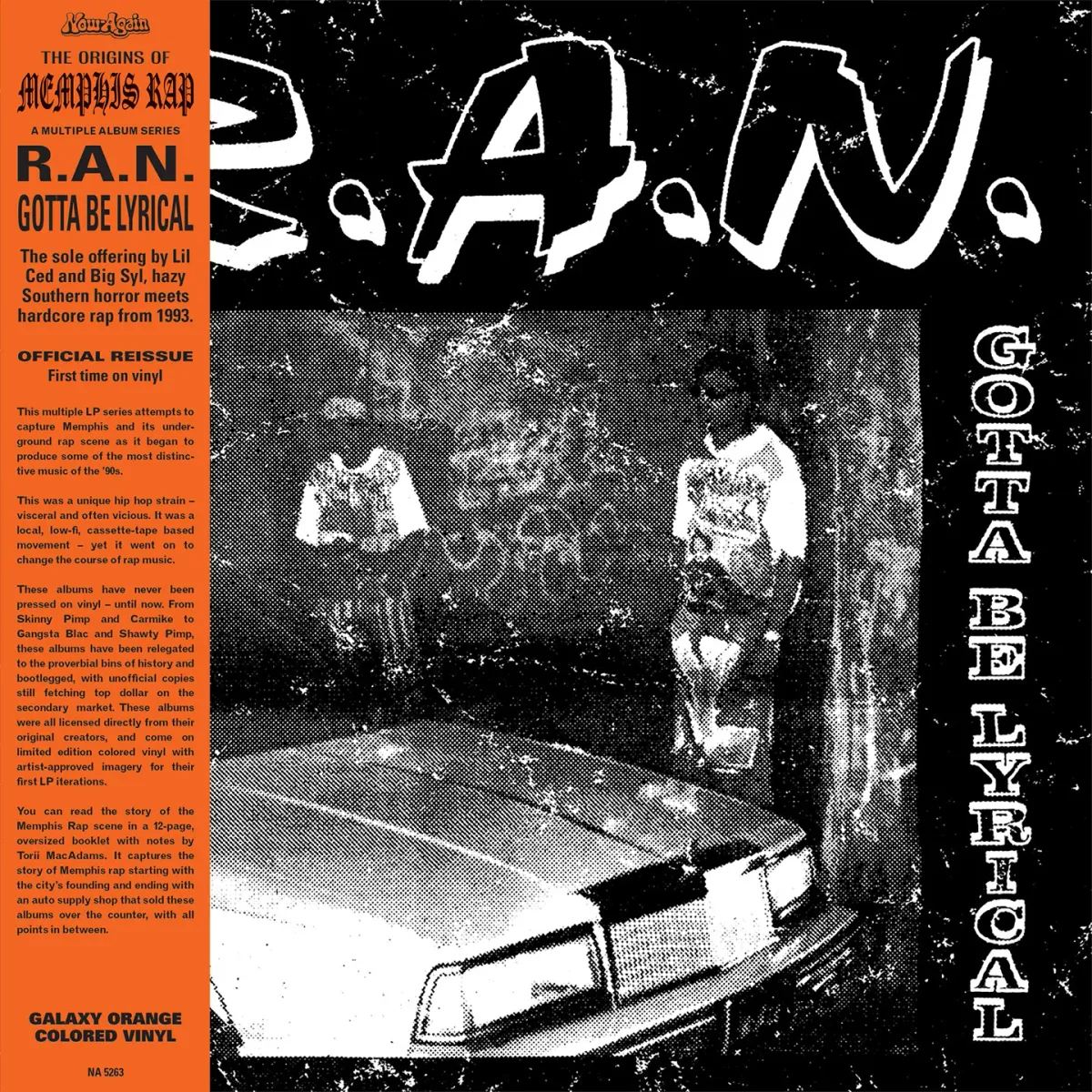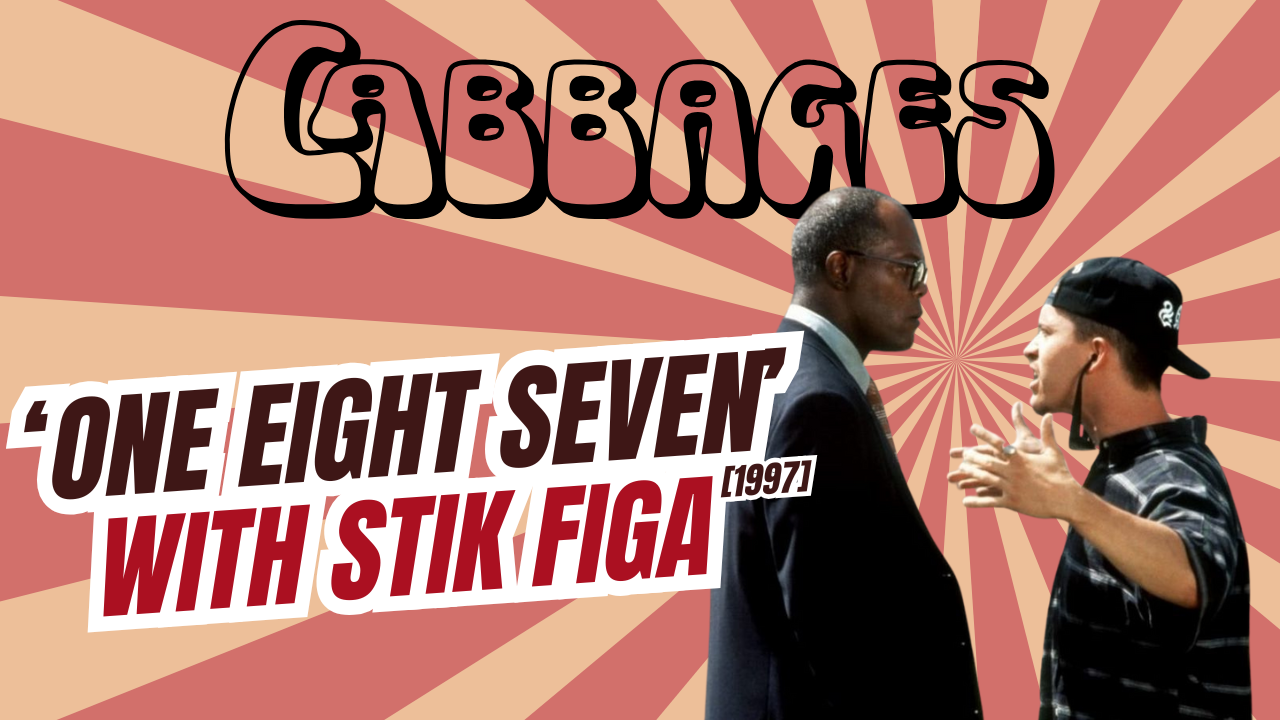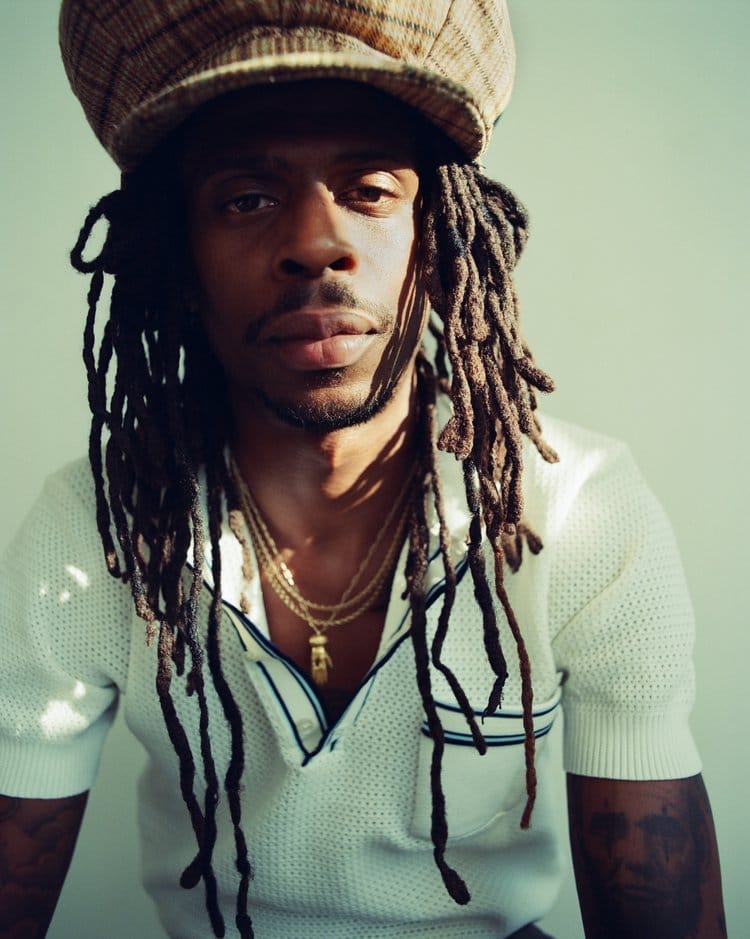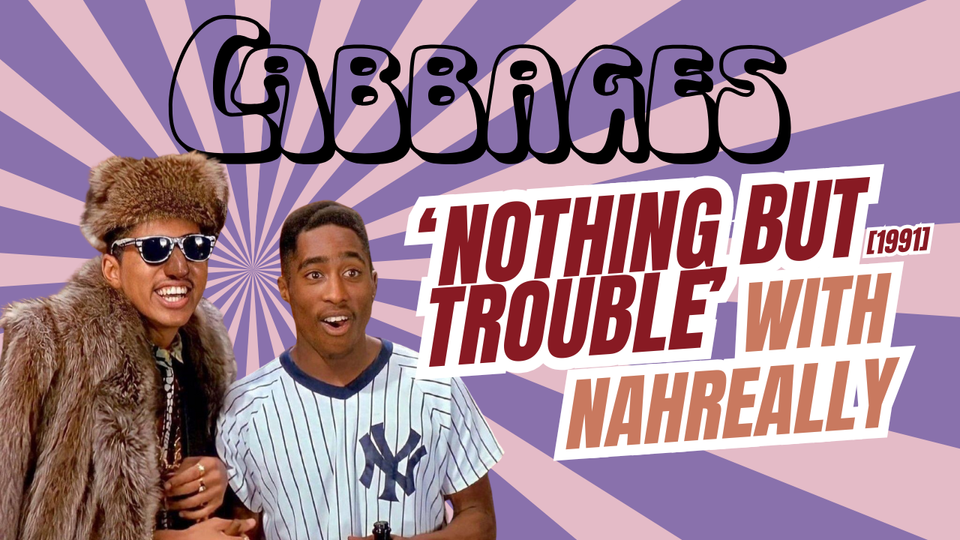G-Walking In Memphis: R.A.N. & Skinny Pimp
A look back at once-obscure hardcore rap gems. +reviews of OldBoy Rhymes and ØKSE.

When Three 6 Mafia won the Oscar for Best Original Song at the 2016 Academy Awards, it was a joyful moment in hip-hop history. Befitting their infamous brand, the image of the group's co-founder DJ Paul on stage at Hollywood's Kodak Theater with his fellow credited songwriters Juicy J and Frayser Boy is an indelible one. As much as it served as a victory for "It's Hard Out Here For A Pimp," their celebration marked a distinctive win for Memphis, specifically.
Like several other rap cities, Paul Beauregard's Tennessee hometown spent much of the 1990s overshadowed by New York and Los Angeles. Though the subsequent rise of Southern hip-hop would eventually elevate Three 6 Mafia on a national level, that coastal duopoly propped up by major label resources and centralized media might kept the historically fertile musical locale artificially underrated. But as locals knew, and as savvy listeners have come to learn, Memphis' rap customs and traditions were as rich as its contemporary impact warrants.
Prior to compact discs becoming both the dominant commercial format and an affordable option for enterprising types, cassette tapes ruled. So when the certified record enthusiasts at Now-Again and Vinyl Me, Please teamed up earlier this year to release The Story Of Memphis Rap, an 11-LP boxset reissuing nine long out-of-print 1990s albums, it was the first time any of these had ever been officially pressed to wax. (You can listen to a limited VMP podcast series all about it at Apple, Spotify, or wherever you get your pods.) No longer ephemeral totems of a bygone era lost to technological progress, these artist-sanctioned collectors' editions brought into the light what most hip-hop magazines, corporate radio stations, and moneyed record companies once sought to keep in the dark.
Now, the boxset's contents have begun to receive a wider release as part of a Now-Again Records reissue program. Five of these albums–Skinny Pimp's Vol. 1 (1993); Shawty Pimp & MC Spade's Vol. 2 (1994); MC Money & Gangsta Gold's Da Hard Ov Frayser (1995); Carmike's Comin' At Yo Ass (1994); and Gangsta Blac's Breakin Da Law (1994)–are due out on vinyl and digital download between now and the end of the year, in that order. But leading off the series is one that didn't appear in the original box: 1993's Gotta Be Lyrical by R.A.N.
Comprised of Lil Ced and Big Syl, the Ruthless Ass N****z initially formed around 1990 as trio before ultimately settling in as a duo. With all production effectively credited to "The Wax Wizzard Beatmaster DJ Flash of K.G.B. Productions," their sound on Gotta Be Lyrical speaks to the somewhat lo-fi, sample-based style prevalent in Memphis at the time. Songs like "My Mind Blinking Out" and "Life On Tha Dark Side" typify the city's slow motion head nod fare, the vocalists' respective and oft clashing approaches unified by real talk. Lyrically, their themes hardly shy away from documenting and threatening violence, blurring the lines between fantasy and environment.
That said, Gotta Be Lyrical is anything but one-note. R.A.N. clearly took more creative risks than other artists with more resources did. From the Miami bass party pop-off "What's Up Man (Campaignin')" to more narcotized moments like "Smoking On That Mask," the pair adapted well at a time when hip-hop was in both flurry and flux. If nothing else, their sole album makes a supportive case for deeper consideration of Rap-A-Lot and Suave House discographies when discussing the so-called Golden Age.
In subsequent years, Syl appeared on a number of DJ Squeeky-helmed projects, representing as part of the producer's Mo Cheda Mobstaz group in the early-to-mid-2000s. As for Ced, he self-released his solo album Playin' By The Rules (reissued in The Story Of Memphis Rap boxset) through a short-lived imprint called Icywhite Records, which also put out 211's Ghetto Gangsta. (A fantastic new interview with Ced conducted by Torii MacAdams can be found on that VMP podcast's Season 20 finale.)
Not surprising given their coexistence in Memphis' then-insular scene, DJ Paul featured R.A.N. on no fewer than two of his own mixtapes the same year Gotta Be Lyrical dropped. "Quit Fuckin Wit The R.A.N." was on the A-side of Volume No. 14, while two more joints ("Somethin To Think About," "R.A.N.") were on the B-side. On Vol.15 "For Them N****z W/ Anna," their "Kickin Gangsta Shit" was included alongside cuts from Koopsta Knicca and Lord Infamous, among others.
Another presence on those 1993 tapes, as well as multiple others from DJ Paul and Juicy J, was Skinny Pimp. Following a stint with DJ Squeeky's camp, the North Memphis rapper was closely aligned with a nascent Three 6 Mafia, spitting opposite 211 on the crew's 1994 compilation Smoked Out Loced Out and eventually guesting on their 1995 full-length debut Mystic Stylez. Fans will likely remember his vicious verse (credited to Kingpin Skinny Pimp, his most common moniker) on that album's "Live By Yo Rep," a product of the group's brief albeit memorable beef with Bone-Thugs-n-Harmony.

While DJ Paul would eventually serve as executive producer on his proper album debut King Of Da Playaz Ball in 1996, there's a small treasure trove of earlier Skinny Pimp material on the just-reissued Vol. 1. The latest in the Now-Again series, this was one of his "Undaground" tapes, dating back to 1993. Stuffed with syllabic acrobatics, these nine songs should have instant appeal among Memphis heads, combining the signature lo-fi grit of its time with the pitchy emcee's unabashedly explicit anecdotes of the pimp game.
Opening with Dolemite-type comedic crassness, "Inkmatized (Westhaven Smoke One)" smacks of dissonance as the rapper delivers his melodic flow. That slicked-back sense of humor runs constantly throughout the tape, via the sex worker banter of the Windowlicker-esque 808 bump of "Skinny Pimpin Hoez" or his own blunt verses for "If U Didn't Know Bitch." Indicative of his inherent skills, the chopped hooks on "Dirty Tramp" and the profane "Psychopathic Lunatic" feel primordial or prescient given what we'd soon hear from his Triple 6 peers in the coming years. Funny, harsh, and unapologetic–Vol. 1 is, in short, a must-hear record in the pimp rap canon.
Even after severing ties with Three 6 Mafia, Skinny Pimp stayed active in Memphis rap circles, recording for multiple independent labels and guesting on numerous projects. Most recently, he appeared as the host of Denzel Curry's guest-packed King Of The Mischievous South Vol. 2 in a clear nod to his own mixtape legacy.

OldBoy Rhymes, The Sane Asylum (buy it / stream it)
Long a home for a certain strain of lyrically-minded indie hip-hop, Sage Francis' Strange Famous Records has housed notable and obscure releases over the years. Yet beyond B. Dolan, Buck 65, and the latter-day works of Rhode Island rap's patron saint himself, much of its admirable output earns little more than quiet acclaim and cultish respect. That's all the more reason for those unfamiliar with the roster to get wind of their latest signee OldBoy Rhymes. If names like Brother Ali, Jel, or Myka 9 stir something in you, then their auspicious presence on the Alaska-born rapper's debut The Sane Asylum should be further evidence of his worth. Out the gate, he comes with righteousness and rage on "What's Hard," both erecting and dismantling his raison d'être in just over three harrowing minutes. Wordy and worldy, though somehow never weary, he tells his life story bar-by-bar via the flow-flipping origin tale "Strange Kids" and the hopeful reminiscences of "Faith Healer." With a healthy distrust of authority, there's a militancy to his methodology that adds mass to the politically unaffiliated "How Many?" and "Somehow." Whether riding the straight-talk express for "American Pyramids" with Mr. Lif and the aforementioned Francis or wielding his love like a vibranium shield on "Sick Of You," he sure makes one hell of a first impression.
ØKSE, s/t (buy it / stream it)
Anyone who closely follows the avant exploits of Armand Hammer rappers billy woods and ELUCID knows about their adjacent collabs with unfettered marvels Shabaka and Moor Mother. Few, then, should be shocked that woods' Backwoodz Studioz imprint would platform a free jazz ensemble like ØKSE. Sliding into the legacies of Art Ensemble of Chicago and John Zorn, this multi-national quartet of acoustic and electronic players readily incorporate some of New York's most nonconforming emcees (including Cavalier) into their adaptable, expansive sonic space. Instrumentals adjoin the vocal tracks on this self-titled affair, making for a suitably unstable listening experience. The post-illbient freakout "Fragrance (some days dosn't have fragrance)" leads into the shakily grounded "The Dive," the latter's drama amplified by H31R's maassai diving into the wreckage and ruin. You can almost hear a digable, planetary groove on "Three Headed Axe" just before it veers out of orbit into awe-striking skronk, while drummer Savannah Harris' heavy thumping on "Amager" gives woods a forceful foundation to flow over.


Three new tracks for you to snack on...
Desert Camo (Oliver the 2nd & Heather Grey), "Oh, So It's Like That??"
Farma G & Wish Master, "Crooks And Villains (feat. Datkid)"
Samara Cyn, "Katana"





